The Intricacies of Game of Thrones: Beyond the Screen
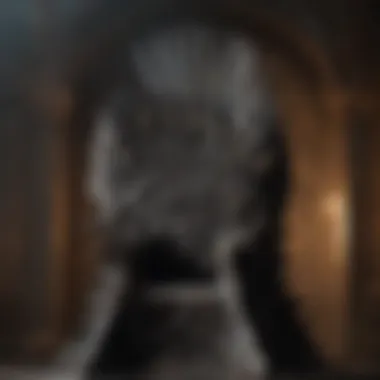
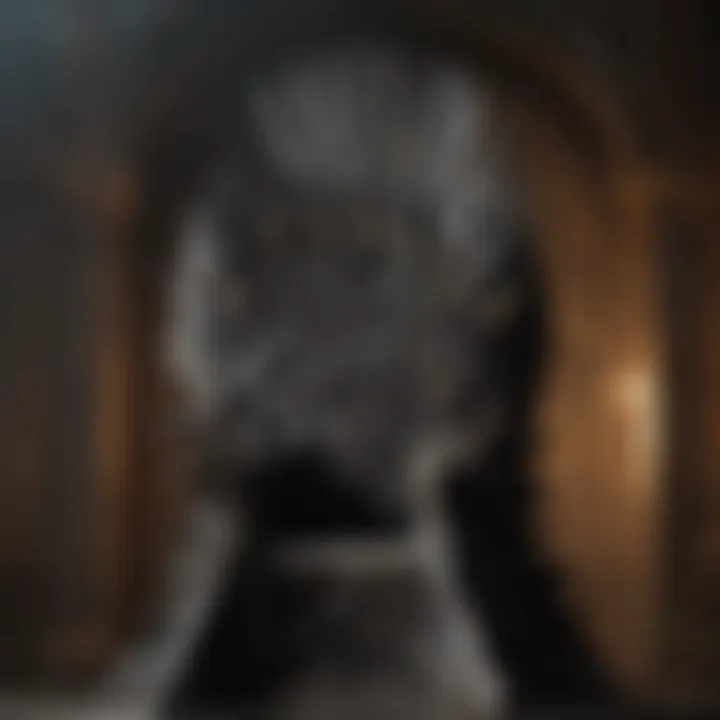
Intro
The cultural phenomenon that is Game of Thrones has stirred quite the conversation since it first graced our screens. This epic series, adapted from George R.R. Martin's intricate novels, captures the imagination with its complex storytelling and multifaceted characters. Although many fans found joy in the grand battles and shock-filled plot twists, there lies a much deeper engagement that often goes unnoticed. Delving into the series not only enhances the viewing experience, but it can also help us understand the broader implications of its themes.
In this exploration, we will dissect the characters, break down pivotal episodes, traverse the rich lore of Westeros, and even touch on the speculative realm of fan theories. The artistry of Game of Thrones is interwoven with compelling narratives that resonate within contemporary society, drawing parallels between the fictitious world and real-world complexities. Specifically, we aim to bring to light the intellectual riches that accompany casual viewing, benefiting both those who occasionally tune in and the ardent enthusiasts who analyze every detail.
Character Dissections
Detailed Analysis of Key Characters
From the cunning tactician Tyrion Lannister to the fierce Daenerys Targaryen, the characters in Game of Thrones bring a blend of complexity and allure. Each character embodies distinct traits and motivations that often intersect in unexpected ways.
- Tyrion Lannister: Known for his sharp wit and keen intellect, Tyrion faced prejudice due to his stature. His journey reflects themes of acceptance and resilience, showcasing how one’s perceived flaws can become their greatest attributes.
- Daenerys Targaryen: Evolving from a meek girl exiled from her homeland to a determined ruler aiming to break the wheel of tyranny demonstrates her relentless pursuit of power balanced with a quest for justice.
These character arcs highlight the struggle for identity in a world fraught with political strife.
Character Development Throughout the Series
The character evolution in Game of Thrones is often seen as a microcosm of broader societal changes. Take Jaime Lannister, for instance; he starts as the quintessential villain but gradually reveals layers of honor and complexity. His relationship with Brienne of Tarth further complicates his narrative, blurring the lines between good and evil.
Characters like Sansa Stark evolve profoundly as well. Beginning as a naive girl, she transforms through hardship and betrayal into a shrewd strategist, embodying resilience amid chaos.
Impact on the Overarching Storyline
Every character’s choices ripple through the series, influencing events both major and minor. For instance, Ned Stark’s honor and subsequent downfall kickstart a chain of events that reshape the political landscape of Westeros. The personal conflicts intertwine with larger themes of power, loyalty, and betrayal, creating a rich tapestry that keeps viewers riveted.
"The journey is often more telling than the destination; the growth lies in the choices made along the way."
Episode Breakdowns
Recap of Significant Events in Each Episode
Each episode serves as a carefully crafted chapter where a plethora of events unfolds. Episodes like 'The Red Wedding' showcase not just brutal drama but also underline the pivotal intersections of fate and power.
Exploration of Themes and Symbolism
The series masterfully employs symbolism to enrich viewer understanding. The Iron Throne, for instance, represents not just power but also the burdens that accompany rule, ultimately leading to destruction for many who pursue it.
Key Moments and Their Implications
Certain scenes resonate far beyond their immediate impact. The moment when Daenerys conquers Astapor not only marks a turning point in her journey but also highlights discussions about the ethics of power and freedom, pointing to the moral complexities within war and conquest.
Lore Explorations
Delving into the Rich History and Lore of Westeros
Westeros is built upon an extensive tapestry of lore that enriches the narrative depth. The Targaryen history, with its dragons and dynastic struggles, provides a backdrop to the current conflicts, echoing themes of legacy and ambition.
Uncovering Hidden Details and Connections
Often, subtle details tie episodes together. A throwaway line or a background symbol can sometimes reveal vast lore connections, allowing viewers to appreciate the intricate weaving of George R.R. Martin's world.
Exploring the Cultural and Mythical Aspects of the World
The mythology in Game of Thrones echoes real-world histories and myths, offering viewers a lens to view their own societal structures and flaws. Elements, such as the ancient Weirwood trees, symbolize the connection to the old gods and can also spark discussions analogous to faith and belief in our own world.
Fan Theories
Compilation of Popular and Intriguing Fan Theories
In the age of the internet, theories sprout like mushrooms after rain. Fans have posited ideas ranging from Jon Snow's true parentage to the possibility of alternate endings based on character trajectories.
Evaluation of Theories Based on Evidence from the Show
A compelling theory regarding Arya Stark suggests her journey might be linked to the Faceless Men serving a more significant purpose in the narrative’s resolution, which aligns with her character’s evolution.
Speculation on Future Plot Developments
As discussions swirl, speculation about a sequel series or spin-off reignites interest in lingering questions. The character arcs and potential storylines invite continuous engagement, keeping the legacy of Game of Thrones and its narratives alive long after the final credits rolled.
Ultimately, the rich exploration of Game of Thrones offers much more than just entertainment. It grants viewers a gateway to understanding complex characters, societies, and the very nature of storytelling itself.
Preamble to Game of Thrones
Understanding the intricacies of Game of Thrones sets the stage for many discussions on its impact and significance. This section provides a gateway into the world of Westeros, highlighting the elements that not only capture viewers’ attention but also draw them deeper into the narrative.
In an age dominated by shallow entertainment, Game of Thrones stands out due to its layered storytelling and rich characterizations. Therefore, it becomes imperative to explore how these facets come together to create a tapestry of drama, politics, and complex relationships. These elements compel viewers to sit up and take notice, stimulating conversations among fans regarding the ethical dilemmas and political maneuvering that unfold on screen.
This exploration will help readers grasp the multifarious experiences that accompany watching a show that is often misconstrued as just another fantasy drama. It deepens comprehension, engaging both casual viewers who might merely enjoy the epic battles and die-hard fans dissecting every scene.
Brief Overview of the Series
Game of Thrones, based on George R. R. Martin's A Song of Ice and Fire series, has become a cultural phenomenon since its debut on HBO in 2011. The series, spanning eight seasons, invites viewers into a richly constructed universe, layered with political intrigue and fantastical elements.
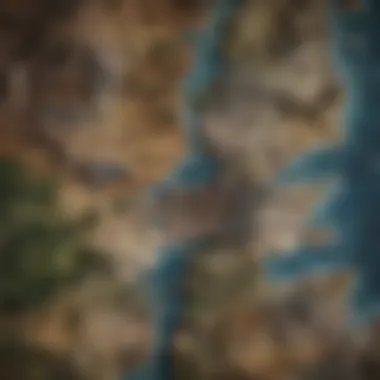
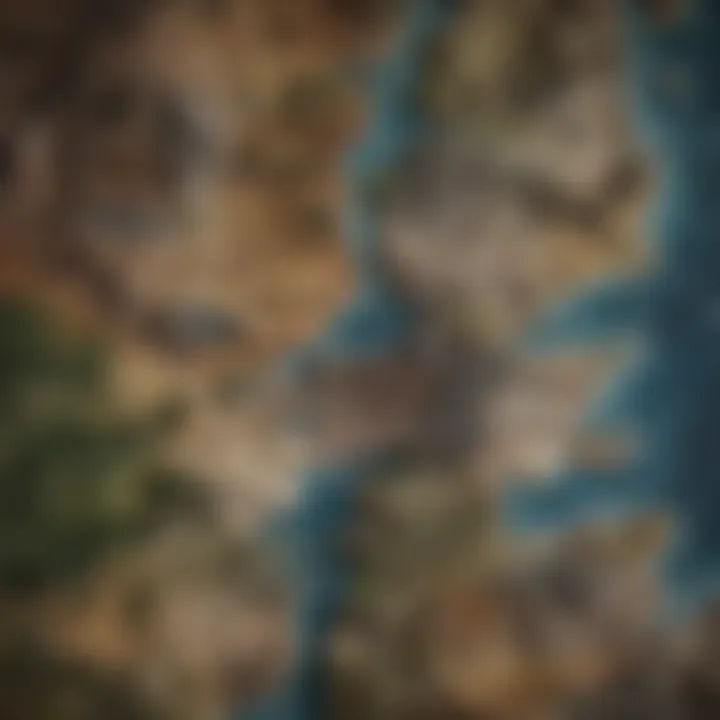
The narrative unfolds across the Seven Kingdoms of Westeros, presenting viewers with a multitude of characters, each with their own ambitions, flaws, and moral quandaries. From the noble Stark family of Winterfell to the cunning Lannisters of King’s Landing, audiences are given a vast array of perspectives that drive the story forward. The show doesn’t shy away from brutal realities—betrayals, alliances, and the ever-present specter of death loom over every character, shaping not only their fates but the very world they inhabit.
Key Themes and Elements
The allure of Game of Thrones is hinged on its thematic richness. Several elements emerge consistently throughout the series:
- Power and Ambition: The relentless pursuit of power manifests through various characters, showcasing the moral decay that often accompanies totalitarian rule.
- Morality and Ethics: The show is not afraid to challenge viewers with ethical dilemmas, often presenting choices where the line between right and wrong blurs, forcing characters, and by extension the audience, to confront uncomfortable truths.
- Family and Loyalty: Relationships are pivotal, sometimes forming the backbone of the plot. Loyalty can come at a hefty price, and familial ties become tangled amidst political agendas.
- Fate versus Free Will: Characters struggle against their destinies, raising questions about the extent of their agency in a world rife with cosmic forces and prophecies.
"In Game of Thrones, the dance of politics and betrayal is not merely entertainment; it's a reflection on the human condition that resonates deeply with viewers today."
Ultimately, these themes combine to create a narrative that skillfully intertwines character-driven storytelling with socio-political reflections, making the experience of watching Game of Thrones not just entertaining, but intellectually stimulating.
The Narrative Structure
The narrative structure of Game of Thrones serves as the backbone of the series, guiding viewers through its intricate web of stories and characters. Understanding this structure is key to appreciating not just the plot's progression but also the thematic depth and emotional impact of the storytelling. The show masterfully employs devices such as multi-perspective storytelling, which allows for a rich understanding of characters and events. These elements work in tandem to create tension and anticipation, drawing viewers deeper into the world of Westeros.
Multi-Perspective Storytelling
In Game of Thrones, the narrative unfolds through the eyes of various characters, each bringing their own perspective to the table. This approach has many benefits. It cultivates a sense of intimacy, allowing the audience to connect with the characters on a profound level. For instance, consider how the motivations of Tyrion Lannister and Arya Stark are vastly different, yet both are grounded in personal struggles and ambitions. The audience is privy to their thoughts and feelings, which creates empathy regardless of whether they are deemed 'heroic' or 'villainous.'
The use of multiple viewpoints also heightens the complexity of the plot. As viewers switch from the Northern cold of Winterfell to the arid Dorne, they witness the stark contrasts in culture and ideology. Each character lives in a unique world, and their stories intersect in unexpected ways, leading to a rich narrative tapestry.
"Multi-perspective storytelling invites us to dance among the realities of different lives, constantly shifting our loyalties and judgments."
Pacing and Tension Building
Pacing in Game of Thrones is orchestrated like a finely tuned symphony. The writers know when to place the foot on the gas and when to ease off, creating a rhythm that keeps viewers at the edge of their seats. Slow moments filled with political intrigue are often punctuated by sudden bursts of action, such as battles and shocking plot twists. This back-and-forth creates a rollercoaster of emotions, building tension that can be almost unbearable.
Each season is structured to increase the stakes—whether through character development or plot progression. A prime example is the evolution of characters like Daenerys Targaryen. From her humble beginnings, her narrative arc is built meticulously, layer by layer, leading to pivotal moments that redefine her character. The tension surrounding her rise and the fear she might become what she seeks to destroy compels the audience to engage continually.
As viewers reflect on moments of tension, it becomes evident that the pacing not only drives the plot but also emphasizes the thematic undertones of loyalty, betrayal, and power struggles. The narrative structure, therefore, stands as a crucial element in crafting a story that resonates deeply and encourages viewer investment.
Character Development
Character development is at the very heart of what makes Game of Thrones resonate with its audience. The show meticulously crafts each character, allowing viewers to witness their growth, flaws, and redeeming moments. In a series marked by moral ambiguity, the depth of character portrayal opens a window into the complexities of human nature, making the stakes feel personal. By examining protagonists and antagonists, the subversion of expected archetypes, and the intricate character arcs, we can appreciate why character development remains a crucial element in this epic narrative.
Protagonists and Antagonists
From the outset, Game of Thrones is rich with a diverse cast of characters that defy the simple labels of good and evil. Take Jon Snow and Daenerys Targaryen, for instance. On the surface, they appear to occupy the hero's seat; however, their journeys are anything but straightforward. Jon, raised as a Stark but always feeling like an outsider, embodies a sense of honor that often leads him into conflict with the harsh realities of his world. Daenerys, initially a victim of her circumstances, evolves into a formidable leader, but her struggle for liberation leads her down a darker path as the series progresses.
This duality in character portrayal is essential. It invites viewers to engage in a constant evaluation of who is worthy of empathy and who is not. Characters like Cersei Lannister and Petyr Baelish, labeled as antagonists, showcase layers of motivation that can leave one sympathizing with their plight despite their morally questionable actions. This blending of heroism and villainy fosters a nuanced narrative that keeps viewers hooked, questioning their loyalties and judgments.
Subversion of Archetypes
The subversion of traditional archetypes is pivotal in Game of Thrones, setting the series apart from conventional fantasy tales. Characters who seem to neatly fit into stereotypical roles, such as warriors, maidens, or wise old men, often reveal unexpected depths that challenge viewers’ assumptions. Consider Arya Stark. Initially portrayed as a tomboy seeking adventure, she evolves into a skilled assassin. In a typical fantasy setting, one might expect a character like her to remain innocent or to serve as a damsel in distress. Instead, she embodies resilience and ambition, often outshining her male counterparts in critical moments.
Moreover, the subversion is not limited to heroes. Tyrion Lannister represents the clever, witty outsider, yet his journey questions notions of power and worth. Instead of wielding brute force, Tyrion relies on his intellect, navigating political intrigue with strategic finesse. This unexpected twist on character roles pushes viewers to rethink the qualities that define strength, loyalty, and morality.
Character Arcs and Transformations
Character arcs in Game of Thrones are meticulously plotted, often reflecting the shifting complexities of its narrative landscape. The transformations that characters undergo are not just for shock value; they serve as reflective commentaries on the essence of power and personal choice. For instance, Jaime Lannister's transition from the arrogant Kingslayer to a more grounded individual who grapples with his past actions is a compelling journey. His gradual realization of the consequences of his choices adds layers to his character that evoke empathy even after repugnant acts.
In stark contrast, characters like Daenerys serve as cautionary tales regarding the intoxicating nature of power. Her shift from a benevolent leader to one driven by vengeance raises critical questions about loyalty, justice, and the fine line drawn between liberator and tyrant. One might consider how these arcs mirror real-life struggles with ambition, morality, and the impact of one's choices on both self and others.
"The greatest villain is often the one who believes they are the hero in their own story."
In sum, character development in Game of Thrones is fundamental to its storytelling. The way characters evolve or devolve, the moral dilemmas they face, and their interactions all contribute to a rich tapestry of narrative complexity. This depth encourages viewers to engage not just passively, but actively, leading to an enriched understanding of the series as a whole. As we explore these intricacies, we unveil the real magic behind the series’ allure, leaving a lasting impact on audiences long after the final credits roll.
World-Building in Westeros
World-building is a game-changer in storytelling, and few examples stand out as much as the realm of Westeros. This intricate tapestry of lands, cultures, and histories not only serves as a backdrop for the action but also plays a pivotal role in shaping the characters and narratives we engage with. In Game of Thrones, the world is practically a character in its own right, influencing decisions, alliances, and conflicts throughout the series. Its complexity adds layers of meaning to the plot, keeping viewers invested long after an episode ends.
Geographic Diversity and its Significance
The geographical landscape of Westeros is strikingly diverse. From the frostbitten tundras beyond the Wall to the sun-soaked shores of Dorne, each region brings its own flavor and implications for the story.
- The North, rugged and unforgiving, embodies the stark realities faced by its inhabitants. Here, loyalty is forged in the harsh winds and chilling winters. The stark contrast between the North and the southern lands serves to highlight the differences in values and survival instincts, influencing character dynamics starkly.
- King's Landing, the capital, is a boiling pot of political intrigue. Nestled near the coast, its strategic position amplifies both trade and conflicts. The bustling streets are a cradle for ambition and treachery, where power plays take center stage.
- Dorne, on the other hand, showcases a different kind of strength, dealing with themes of passion and rebellion. Its warmer climate and rich cultural nuances contrast sharply with the North, representing how regional characteristics shape the ethos of its people.
This rich geographical diversity creates a sense of realism and generates conflicts rooted in environmental and social contexts. Viewers see firsthand how the landscape could influence everything from military strategies to trade agreements, pulling them deeper into the narrative.
Cultural Nuances and Factions
In addition to geographical considerations, the cultural nuances across Westeros further enrich the world-building aspect. Each house, faction, and region comes with its own history, customs, and motivations. These cultural differences are not just ornamental; they serve as essential driving forces behind characters’ aspirations and actions.
- House Stark epitomizes honor and loyalty, a reflection of the harsh Northern life they embody. Their motto, "Winter is Coming," is a reminder of the inevitable hardships of life, influencing their decisions even during moments of luxury in the capital.
- House Lannister, with their golden fleece, reflects wealth and cunning. Their motto, "Hear Me Roar!", symbolizes their desire for power and dominance, driving several of the plot’s pivotal turns.
These varying cultural attitudes result not only in alliances but also betrayals that reverberate throughout the series. The complexity of factions—ranging from the honorable nights of the Knights of the Vale to the shrewd schemers of House Tyrell—adds tension and depth, making the outcomes ever more unpredictable.
"World-Building is an art, and Westeros is a masterpiece crafted by layers of history, culture, and geography that shape every tale told within its borders."
In sum, the rich world of Westeros serves as much more than a mere setting. It's a dynamic entity that molds the very fabric of Game of Thrones, enhancing both viewer engagement and thematic depth. By thoughtfully integrating geographic and cultural elements, the series offers an escape into a world that feels both vast and intimately personal.
Viewer Engagement and Community
In the landscape of television, Viewer Engagement and Community surrounding Game of Thrones is not just an afterthought; it's a fundamental element that shapes the entire experience of watching the series. This section will explore the multifaceted ways in which audiences engage with the show and one another, painting a broader picture of how communal viewing enhances the series' legacy.
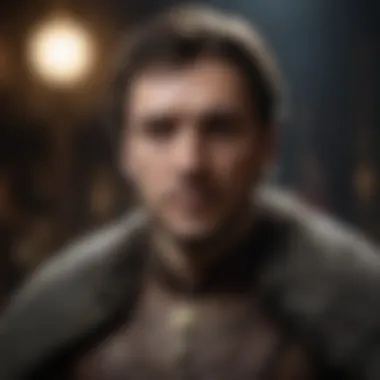
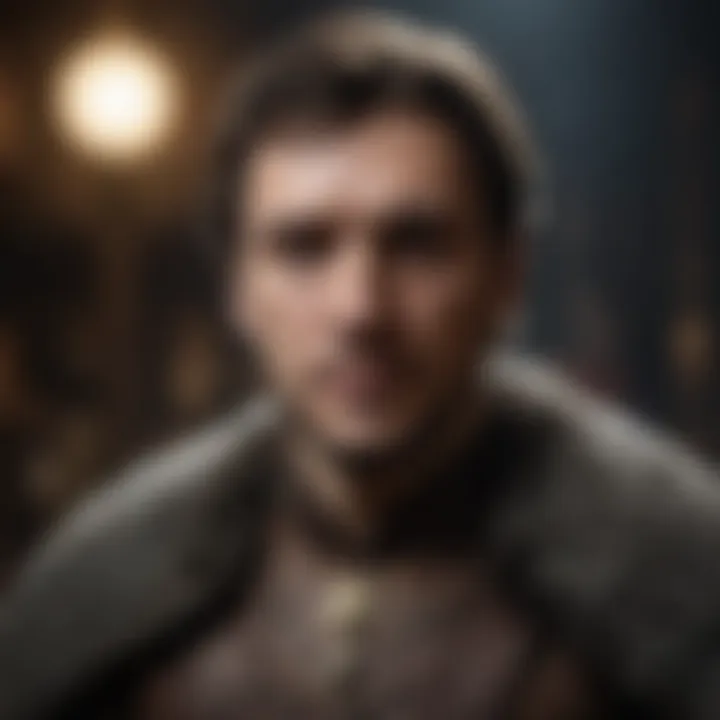
The popularity of Game of Thrones transcends simple viewing; it has become a shared phenomenon, prompting discussions, fan theories, and a robust online presence. Through various platforms, fans connect and collaborate, forming tight-knit communities that explore every aspect of the show. This engagement reflects a deep-seated need for connection, allowing people to dissect plotlines, character motivations, and thematic elements together.
The Role of Fan Theories
Fan theories have become a driving force in the Game of Thrones experience. As viewers huddle around screens, they ponder their interpretations of the storyline and speculate about the fates of beloved characters. Many fans take to blogs and social media to present their theories, sometimes hitting the nail on the head and other times wildly missing the mark.
These theories serve several important purposes:
- Encouragement of Critical Thinking: Engaging with complex plots leads fans to dive deep into character arcs and show lore, encouraging a more analytical style of viewership.
- Community Building: When fans share their thoughts, it fosters connections with like-minded individuals. These communities engage in spirited debates, share artwork, and collaborate on fan fiction.
- Anticipation and Excitement: Theories often ramp up excitement during the wait for new episodes. Discussions about what could happen next become integral to the viewing culture, making every new season feel monumental.
"In the land of Westeros, there are many paths; theories serve as signposts for the fascinating journeys fans take together."
Discussion Forums and Social Media Impact
As the series unfolded, online forums and social media platforms became vital arenas for discussion and debate. Places like reddit.com boast a myriad of threads dedicated to episode recaps, speculation, and fan art, offering a treasure trove of analysis and opinion.
- Real-Time Reactions: Fans flocked to platforms like Twitter during airing, sharing their immediate reactions to shocking moments, which helped forge a collective viewing experience. \n- User-Generated Content: Platforms like Facebook and Instagram became channels for fans to express their creativity, whether through memes, videos, or artistic renditions of characters or scenes.
- Nurturing Diverse Opinions: Discussion forums allow for the exploration of diverse perspectives, as fans share their interpretations and analyze themes like morality, power, and loyalty. Each interpretation adds depth to the understanding of the series.
Cinematic Techniques in Game of Thrones
The realm of Westeros comes alive not only through its narrative and character arcs but also via its cinematic techniques. These methods amplify the viewing experience, drawing the audience deeper into the world that George R.R. Martin imagined. The combination of striking visuals and immersive sound transforms Game of Thrones from mere storytelling into an intricate, multi-sensory experience. With each season, the series has utilized various cinematic tools to enhance its captivating tales of power, betrayal, and the stark realities of life.
Cinematography and Visual Style
Cinematography in Game of Thrones is not just about capturing scenes; it’s about weaving a narrative through visual storytelling. The cinematographers working on the show employed a variety of techniques that contributed significantly to its allure, making each episode a work of art.
- Use of Natural Light: One key aspect is how the series often relied on natural light, especially in outdoor scenes. This approach infuses authenticity. It allows viewers to feel the harshness of winters and the bright, but sometimes brutal, nature of summer.
- Framing and Composition: The show frequently uses wide shots to establish the vastness of King’s Landing and the chill of the North. An audience can almost sense the chilly wind or the oppressiveness of the Iron Throne just by looking at how each shot is framed. A scene's composition affects the viewer’s emotional response.
- Color Palettes: The show’s color scheme varies per season and region, further anchoring viewers to the current narrative arc. Winter scenes are often washed in grays and blues, whereas warmer scenes transmit golden hues, representing life and vitality.
This intricate use of cinematography not only tells a story but also resonates with viewers on an emotional level, creating a connection that draws one in.
Sound Design and Score
Sound design in Game of Thrones plays a foundational role in building atmosphere and tension, pulling the audience further into its complex territories.
- Ambient Soundscapes: The creators paid meticulous attention to background sounds. From the clamoring of swords during a fierce battle to the whispers of the wind in a quiet Vale, these soundscapes are essential. They help to set the mood and immerse the viewers in its multifaceted world.
- Musical Score: Ramin Djawadi’s score is iconic. The theme itself is enough to get blood pumping. Each character often has their unique musical cues, which help to signify their presence and add depth. For instance, the haunting theme of the Stark family, reflects their resilience and haunting losses.
- Use of Silence: Interestingly, silence is used effectively as a tool, especially in moments of high emotional stakes. It provides an uncomfortable space for viewers to ponder before the next explosion of sound, whether it’s in battle or a shocking revelation.
"Every sound, every note, and even silence creates a landscape that the viewers can lose themselves in, expanding their engagement beyond the visual."
In summary, the cinematic techniques employed in Game of Thrones elevate it to a veritable masterpiece of visual storytelling. The meticulous attention to cinematography and sound design not only enriches the narrative but also profoundly engraves its themes and characters into the memory of its audience.
Thematic Explorations
When diving into the world of Game of Thrones, the surface enjoyment honestly just scratches the itch. Unpacking the themes hidden in the tapestry of the story, such as power dynamics, morality, gender roles, and loyalty, adds layers of depth to the viewing experience. These themes shape not only the characters but also how we perceive the unfolding drama and interpersonal relationships within the realm of Westeros. Each theme stands as a reflection of real-world issues, making the series feel relevant even beyond the fantastical setting.
Power Dynamics and Morality
Power is almost like a character itself in Game of Thrones. It flows through the veins of Westeros, dictating actions and resulting in dire consequences. Each of the noble houses is in a ceaseless struggle for dominance, with machinations that reveal the murkiness of morality. This battle for power often forces characters to confront their ethical boundaries.
Take Tywin Lannister, for instance. His influence often blurs the lines between right and wrong. One could argue that the end justifies the means, but at what cost? The series doesn’t hand out clear-cut heroes and villains. Rather, it illustrates that morality is often situational and heavily influenced by one's desires and ambitions. In this realm, loyalty is valuable currency that can be traded or squandered, pointing to the unpredictable nature of allegiance.
"The things I do for love"
This line resonates deeply throughout the show, encapsulating how power dynamics can twist love into something far more sinister. Characters leverage their relationships to climb the social ladder, exposing their hidden motives, which often lead to chaos and destruction.
Gender Roles and Representation
The gender politics in Game of Thrones can’t be overlooked. On one hand, it features strong female characters like Daenerys Targaryen and Arya Stark, who defy traditional expectations. Daenerys, struggling against a male-dominated society, gradually evolves from an oppressed girl into a formidable leader. She symbolizes empowerment in a world where women are often viewed as pawns in the game of thrones.
Conversely, the show sometimes embraces older gender tropes, highlighting the precarious balance it strikes. Women often serve as bargaining chips in power games, reinforcing the harsh realities faced by individuals in the quest for power. Characters like Cersei Lannister exemplify how toxicity and ambition often intermingle, raising questions of how gender shapes individual roles in combat.
This juxtaposition is compelling, igniting discussions about representation and the portrayal of complex female characters in modern narratives. Are they merely subverting regular tropes, or do they also expose the lingering sexism in society?
The Nature of Loyalty and Betrayal
Loyalty in Game of Thrones is fragile as fine glass. Characters frequently find themselves at a crossroads, faced with decisions that test their allegiances. The unpredictability of loyalty often leads to betrayals that send shockwaves through the lives of those entwined in the struggle for power.
Consider the relationship between Ned Stark and the Lannisters. Ned’s unwavering honor becomes his downfall, highlighting the grim reality that virtue often fails against cut-throat ambition. On the flip side, characters like Jaime Lannister illustrate how complex loyalty can be, especially when love and honor clash.
The fallout from betrayals paints a bleak picture of human interactions. Relationships formed in loyalty are often shattered in the pursuit of power or survival, mirroring the often fickle nature of trust in our own world. This theme urges viewers to consider their perspectives on fidelity and the boundaries they would cross in their quests for power or protection.
Ultimately, these thematic explorations of Game of Thrones encourage viewers to reflect on their own moral compasses while appreciating the intricate fabric of the story and its uncanny reflections of life beyond the screen.
Comparative Analysis with Other Fantasy Genres
When we talk about Game of Thrones, it’s impossible to ignore its place within the wider world of fantasy genres. This comparison isn't just a footnote; it’s integral to understanding what makes the series such a cultural phenomenon. Analyzing the differences and similarities between Game of Thrones and traditional fantasy opens a doorway to exploring how the series effectively challenges conventions.
Understanding this difference provides insight into why Game of Thrones resonated so deeply with a modern audience. While traditional fantasy often revolves around clear-cut heroes and villains, Game of Thrones dances in the gray areas of morality, power, and identity. This exploration highlights not only the narrative complexity of Game of Thrones, but also elevates it from mere entertainment to a social commentary that mirrors contemporary issues.
Game of Thrones versus Traditional Fantasy
In a classic fantasy tale, you typically find an untouched hero on a quest. Imagine a setting where a noble knight embarks to rescue a princess from a dragon, and that’s pretty much par for the course. Many traditional works, think The Lord of the Rings, epitomize this format, offering a straightforward battle between good and evil. But Game of Thrones turns these tropes on their head. Here, the lines between the protagonist and antagonist are invariably blurred. No one is entirely good or bad. Characters like Jaime Lannister or even the cunning Cersei show transformation—not just from one state to another, but from hero to villain and back again at different arcs. This complexity provides a nuanced reflection of the real world, where morality is often subjective and leader's decisions can have grave consequences.
Additionally, unlike classic fantasy that often leans on mythological beings or magical quests, Game of Thrones thrives in political maneuvering and personal strife over sword fights and sorcerers. The familiar fantasy races such as elves or dwarves are absent; instead, we are presented with the realistic struggle of human societies. This contributes to a sense of relatability that engages viewers deeply.
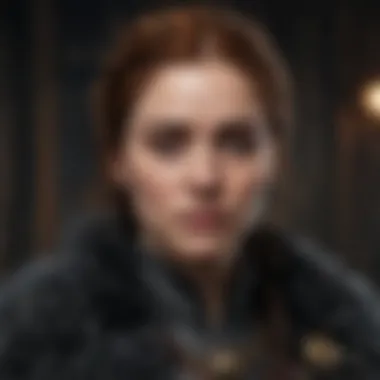
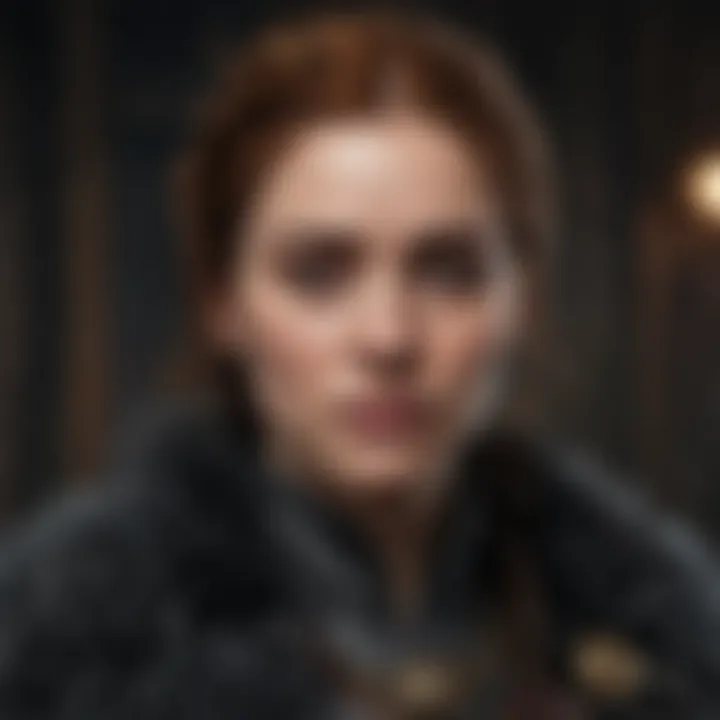
"The moral ambiguity in Game of Thrones offers a stark contrast to the black-and-white viewpoints of traditional fantasy, leading viewers to reconsider their own beliefs and judgments."
Influence on Subsequent Works
Examining Game of Thrones within the spectrum of fantasy also provides an opportunity to discuss its impact on subsequent literary and television works. After Game of Thrones aired, it ushered in a wave of new narratives that challenged the conventions set by earlier fantasy genres.
- Rise of Gritty Realism: Its raw and often brutal portrayal of conflict has led other series to adopt a similar tone. Shows like The Witcher have incorporated darker themes into their storytelling, reflecting the weight of choice and consequence.
- Subversive Character Arcs: Many series have followed suit, steering away from the predictable hero’s journey. The anti-hero trope is now prevalent, reflecting how the audience craves complexity in character development.
- Multi-layered Plotlines: Following the success of Game of Thrones, newer series aim for intricate narratives. This has become a hallmark of modern fantasy that entices viewers to become actively engaged in deciphering plots as they unfold.
In summary, the interplay between Game of Thrones and traditional fantasy is not merely academic; it’s a living dialogue shaping the future of fantasy storytelling. The series brilliantly marries the old with the new, thereby laying the groundwork for future narratives that delve into the human experience through the lens of the fantastical.
Cultural Impact and Legacy
The cultural impact of Game of Thrones cannot be understated. As a television phenomenon, it has shaped not just the landscape of fantasy storytelling, but also how viewers engage with complex narratives. The show sparked countless discussions around its themes, character development, and social implications. This section aims to unpack the layers of influence this series has had on both its audience and the broader pop culture.
A key factor in understanding the legacy of Game of Thrones is its ability to resonate on multiple levels. Not only does it entertain, but it also provokes thought and critique surrounding power, loyalty, morality, and the human condition. As viewers become invested in the narratives, they also become part of a larger conversation that extends into social commentary and cultural critique.
Influence on Pop Culture
Game of Thrones permeated various aspects of entertainment and media, leaving trails of references and tributes across platforms. From parodies on late-night television shows to allusions in other series, the show has woven itself into the fabric of contemporary culture. People often quote lines like "Winter is coming" in casual conversation, and memes proliferating online often echo the show's themes.
Moreover, its character names and iconic scenes have found their way into everyday vernacular, showcasing the series' deep-rooted connection with its fanbase. With Halloween costumes replicating armor and dragons or even simple references to beloved characters, the show's influence has seeped into realms beyond just viewing.
- Cameos in Various Media:
- Impact on Discussions Around Fantasy:
- The Simpsons featured a parody episode.
- Saturday Night Live regularly employs GoT sketches.
- Video games, like Fortnite, incorporated Game of Thrones themes and characters.
- Challenges stereotypes in traditional fantasy narratives.
- Encourages darker, more morally ambiguous storylines in new fantasy works.
Merchandising and Spin-Offs
The merchandise surrounding Game of Thrones is nothing short of immense. It was not just a show; it became a brand. Fans could don house sigils, collect Funko Pop figures, and decorate their spaces with original artwork. The prevalence of merchandise reflects the profound connection fans had with the series, reinforcing their dedication and enthusiasm.
The spin-off projects announced after the original series ended further signify the show's cultural staying power. New storytelling formats promise to explore different eras and characters within the Game of Thrones universe.
- Expected Spin-Offs:
- House of the Dragon: A prequel focusing on the Targaryen civil war.
- Animated Series: Proposed to explore various facets of Westeros.
By examining the merchandise and upcoming projects, it's clear that Game of Thrones is more than just a chapter in television history; it’s an ongoing saga that continues to captivate audiences.
The legacy of Game of Thrones lies not just in its story arc, but in its ability to intertwine with the fabric of our social discourse, allowing for complex conversations around its many themes.
Looking forward, it’s evident that the cultural impact and legacy of Game of Thrones will continue to evolve as new stories emerge from the enigmatic world of Westeros.
Critical Reception and Controversies
The discussion surrounding the critical reception and controversies of Game of Thrones holds significant weight in understanding the series as a whole. This aspect reflects not only how audiences received the show but also highlights the broader implications within the realm of television storytelling. Critics and fans alike engaged in heated debates about various elements, each bringing forth unique perspectives that were often rooted in their expectations and interpretations of the narrative.
Reception of the Final Season
The final season of Game of Thrones remains one of the most polarizing facets of the entire series. When it aired, many viewers approached it with high expectations, given the extraordinary buildup through preceding seasons filled with intricate plotting and character development. Yet, the seventh and eighth seasons diverged in tone and pacing, leading to mixed reviews, with some fans feeling that certain character arcs were abandoned or rushed, while others appreciated the resolution to long-standing plotlines.
Critics pointed out that the final episodes showcased grand visual spectacle, yet at times fell short in delivering coherent storylines. The complaints included:
- Pacing Issues: Many felt that the hurried nature of the final season left little room for the depth previously enjoyed.
- Character Decisions: Key decisions made by well-loved characters came under scrutiny; decisions that felt out of character for fans of long been established arcs.
- Narrative Closure: Viewers sought a resolution to the complex interwoven narratives. However, some felt cheated due to a perceived lack of satisfaction.
Despite the controversy, the monumental popularity of the series allowed it to dominate conversations within the media, dominating discussions on platforms like reddit.com and facebook.com where fans shared their views on what they had hoped for versus what materialized.
Viewer Backlash and Discussion
The backlash against the final installment ignited extensive discussions across various forums. Fans took to social media, passionately expressing their dissatisfaction with how the series concluded. This backlash wasn’t simply a matter of “liking” and “disliking” but served as a vehicle through which deeper issues regarding narrative design and character integrity were debated.
- Fan Theories vs. Reality: The series had created a rich tapestry of theories and speculations among its fans. Discontent brewed as many of these theories never materialized in the end game, leaving some feeling disillusioned.
- Perceptions of Quality: There's an element of dismay over how the series concluded, especially when compared to prior seasons. This sentiment echoes widespread concern about how narrative decisions can affect viewer loyalty and show legacies.
"What truly sticks in the craw of many is not just the ending, but the journey to get there that felt like a wild ride suddenly screeching to a halt."
The interplay between viewer expectations and narrative fruition underscores the unique position of Game of Thrones within the broader television landscape. The controversies not only reflect the complexities of audience engagement but also highlight how modern series are viewed through a lens of fervent investment and connection.
Ultimately, the discussions surrounding the reception of the final season and subsequent backlash serve to illuminate the passionate nature of modern fandoms and the implications of narrative closure—or the perceived lack thereof—in serialized storytelling.
The Future of Game of Thrones
The future of Game of Thrones represents not just the next chapter in a saga known for its twists and turns, but a significant pivot in how storytelling unfolds in modern television. The endings of series often dictate whether a franchise thrives or fizzles. With the conclusion of the original series, the anticipation around forthcoming spin-offs and adaptations has created a buzz that is difficult to ignore. It invites fandom to reconsider its connections to the characters and the intricate world they inhabited. Drawing on familiar elements can both engage longtime fans and attract new viewers. More than that, the future endeavors into Westeros could shed light on unanswered questions while exploring new narratives that encapsulate the complexity of human nature, politics, and morality.
Upcoming Spin-Offs and Projects
Several projects are currently in the pipeline, poised to expand the Game of Thrones universe. These spin-offs are not just mere extensions; they promise to delve deeper into the lore, revealing background stories that fans have long speculated about. For instance, the prequel series titled "House of the Dragon" will center around the Targaryen dynasty, exploring events from their history that led to the infamous civil war known as the Dance of the Dragons.
Some other notable upcoming projects include:
- Tales of Dunk and Egg: Based on George R. R. Martin's novella series, these tales follow the adventures of Ser Duncan the Tall and his squire, Egg, who is later revealed to be Aegon V Targaryen. They offer a light-hearted yet insightful contrast to the fraught themes of the main saga.
- The Knight of the Seven Kingdoms: This project, set to take place several decades before the events of the original series, aims to explore the rich history of the Seven Kingdoms, focusing on the adventures of Dunk and Egg.
These spin-offs hold the potential not only to captivate viewers with new stories and characters but also to enrich the existing narrative tapestry.
Continuing the Mythos of Westeros
As the story of Westeros continues to unfold, it will be paramount for creators to maintain the intricate world-building that fans came to love. The complexity of setting is a character in itself—one that influences every faction's decisions, loyalties, and betrayals. The significance of this mythos cannot be overstated; it provides a backdrop for tales that resonate with timeless human dilemmas.
Given the social and political landscape mirrored in the narratives of Game of Thrones, there is much room to explore current themes like power, governance, and moral ambiguity through new lenses. As the spin-offs give birth to fresh content, the opportunity to address cultural relevance and provide commentaries on our own society can enhance viewer engagement.
"Westeros not only tells a tale of power and betrayal; it reflects our shared human experience and the threads that bind us or tear us apart."



